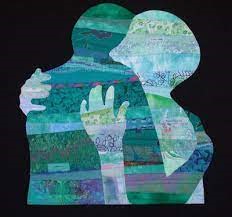A Water from the Well blog post, Parashat Vayishlach
Written by Rabba Kaya Stern-Kaufman

It’s a story as old as time. Two brothers, one inheritance. How many times have I sat with either sibling, both aggrieved, suffering and angry over the settlement of the parents’ estate. How often have I heard the voice that claims, it was unjust! I was denied my due. I was cheated by my sibling. And how often have I heard the pained response: nothing was withheld from you. It was divided evenly. And how painful to be unjustly accused of such wrongdoing. Such conflicts often lead to the total breakdown of communication between siblings and the destruction of family relationships that can ripple through generations. In my own family, my aunt and my mother were engaged in an analogous life-long conflict, and I have witnessed similar stories in the families of my nearest and dearest friends, and in the stories of community members. Is there a family who has not experienced similar conflicts?
As a close observer of archetypal family drama, I have noticed that often (though certainly not always), the sibling who claims they were cheated out of their rightful inheritance may also have felt neglected or cheated emotionally out of their parents’ love. Sibling rivalry for the love and attention of parents is as old as our Torah. In the Biblical story of the very first siblings, Cain and Abel, we learn of the competition between the two for the love of their heavenly Father. Each gives an offering to God but only Abel’s gift is accepted. Cain feels rejected by God and erupts in rage toward his brother, committing the first murder recorded in our Torah.
The story of brothers divided over parental love and inheritance continues through the generations. Abraham has two sons. Yishmael is overtly rejected and expelled from his father’s home while Isaac is given a full inheritance. Isaac has two sons, Jacob and Esau. Jacob, the second-born, will first manipulate his brother Esau and then his father Isaac in order to acquire both his brother’s birthright and his brother’s first-born blessing. In the Torah portion Toldot, when Esau discovers that Jacob has stolen his blessing, his pain leaps from the page.
“When Esau heard his father’s words, he cried out with a great and very bitter outcry and he said to his father, ‘Bless me too Father!’ (Gen.27:34)… And when Isaac said he had already given away his blessing to Jacob, Esau cried, “But my Father, do you only have one blessing? Bless me too Father! And Esau wept loudly!” (Gen. 27:38)… And Esau seethed with resentment against Jacob, over the blessing his father had blessed him with, and Esau said in his heart, “As soon as the time for mourning my father comes round, I will kill Jacob my brother.” (Gen. 27:41)
Esau’s pain is deep and profound. It is the pain of every child who feels denied the full measure of their parents’ love. His murderous rage toward his brother echoes that of Cain. “But my Father, do you only have one blessing?” Can it be that your love is so limited that there is not enough to go around?
And so it is a true wonder when twenty years later (in this week’s Torah portion, Vayishlach), Jacob and Esau will meet again in their maturity, embrace one another and weep in an encounter of true healing. For Jacob has had a reckoning. He has spent the previous night wrestling with some aspect of truth related to his relationship with Esau. He emerges with a wound and with a new understanding of the wound he perpetrated on his brother. He approaches Esau with massive gifts of cattle, as if to return the blessing he had stolen. Esau’s response conveys his own healing. Esau states, “I have enough my brother; let what you have remain yours.” (Gen. 33:9) Each has come to a new understanding of abundance. Jacob has discovered that there is indeed enough to go around without hoarding for himself. And Esau has come to understand that he too has been blessed, that he has enough.
Torah shows us that maturation and healing are possible; that forgiveness and reconciliation are within reach. When we come to understand that the true wealth in our lives flows from our loving and peaceful relationships, then abundant blessings are shared by all.